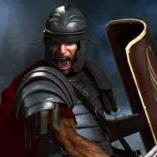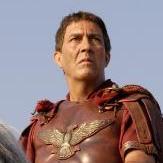
Thorfinn the Shallow Minded
Community Historians-
Posts
1.198 -
Joined
-
Last visited
-
Days Won
15
Thorfinn the Shallow Minded last won the day on October 18 2025
Thorfinn the Shallow Minded had the most liked content!
About Thorfinn the Shallow Minded

Contact Methods
-
Website URL
http://
Profile Information
-
Gender
Male
-
Location
Minnesota
Recent Profile Visitors
7.293 profile views
Thorfinn the Shallow Minded's Achievements

Primus Pilus (7/14)
968
Reputation
-
Since it is an open source project, all soldiers it employs will have to be a volunteer militia force. Alternatively, it could work with a model in which access to the game requires a certain number of years in its military. Either of these methods could protect the game from its most immediate threats.
-
The death of this game has been a long time coming and is truly inevitable. First, the heat death of the universe, something difficult to precisely calculate, will happen in roughly 10^106 years, which I doubt 0 AD will survive. Even if we prepare for that, there is the more immediate problem of the sun depleting its hydrogen reserves in approximately 5 billion years. Unless our team develops proper technology to survive in space, I think 0 AD will fail. In a similar vein, the Andromeda Galaxy's collision with the Milky Way in 4.5 billion years may pose a serious risk to the survival of the community. For these reasons, I regret to say that 0 AD is doomed.
-
That is patently untrue. Fast castle strategies are high risk since they involve surrendering map control and walling your base. This can mean that you can lose access to key resources; the advantage comes in either being able to build two Town Centres to boom economically or potentially do a knight rush, both of which have a means to counter. Playing a game with 115 villagers and only 5 military units is only plausible on a map like Arena, and that sort of greedy strategy can usually be punished. Given the emphasis on micro in Age of Empires battles, smaller armies are a good thing.
-
Spartan Olympic Hoplites
Thorfinn the Shallow Minded replied to Outis's topic in Gameplay Discussion
As per the post, I would say that Hippeis would be a more appropriate title for the bodyguard version, but otherwise I agree. -
This is a fairly minor quibble, but Spartan Olympic Champions should probably be renamed Hippeis to better reflect the truly elite contingent of the Spartan army. For those familiar with Greek, this may sound as if I am suggesting that they be mounted, yet the royal bodyguard, which was on foot and fought in the phalanx, was called that long after horses ceased to be a relevant component of the Spartan military.
-
Scout Unit
Thorfinn the Shallow Minded replied to Thorfinn the Shallow Minded's topic in General Discussion
Just to note, the carry capacity they have does a lot to improve their efficiency as well while hunting. If we want to target gather speed, that should also on the table. -
While 0 AD does have players start with a cavalry, given the importance of hunting as a source of food, it is often relegated to the task of gathering resources, while I have before argued for speed at which they gather food to be slowed down to make early game scouting more relevant, I think that ignores the fact that regardless of how glacial the pace a unit might gather, many would prefer to simply approach the game from a greedy perspective than scout, which I think makes the game weaker; scouting is a key ingredient to most great RTSs. Thus, I think that an argument could be made to have a unit with little to no combat ability and economic value to improve what many have described as a slow and boring early game in the Training Time topic. First, I think that even if these units are only specific to niche skirmish maps, they still should have a place since they could provide good value for future campaigns. If they were to be introduced to regular play, I think that there are some valid questions to ask such as whether they could be trained, how much they would cost in that case, and many more such implications. Athenian and Spartan scouts could be runners, which would obviously benefit any representation of the Persian Wars in campaigns. Persia could have a courier unit, modelling the famous praise Herodotus said regarding the system. Britons could have a smaller dog. Again while I think there is an argument for such units existing in standard play, they certainly would find a great niche for scenarios.
-
I agree that this would be the best way to resolve the current impasse. Unfortunately though, I have never modded the game and only in recent days have been active on the forums due to a hiatus at work. Once it begins anew, I doubt that I will have the time to properly commit to such a project, and given the nuances required, I doubt this would be a simple one and done matter. If I do find the time and energy to do that though, I would be happy to reach out to you.
-
Agreed. The point I made was that 0 AD has training times significantly faster than many of its fellow RTS games, and the numbers I offered, while placeholder of course, would be conservative changes relative to other games. Some have suggested just changing the speed, which slows everything. I for one do not want that to be watching my soldiers moving that slowly. I would never claim that a single change would be without side effects, but the doom and gloom that some would suggest I think is a wild exaggeration. Supposing that the early game feels far too sluggish. Perhaps that's more the fault of things like not properly incentivising players to scout from the get go like most RTSs (Which I think is a problem in 0 AD regardless of whether training times are changed.). From my perspective at least, temporarily ruining a product is a perfectly normal part of prototyping in the interest of creating the most robust iteration possible, and I do not think the risks are as massive with this comparatively modest suggestion. By the way, I searched the forums for topics with the keyword 'alpha 24,' and the in the one topic that criticised the alpha, I found that only christgtr pushed for training times to be reduced. I could not find a single other person pressing for that change. I'm sure there were lobby conversations about it, but the outrage regarding training times seems a bit overblown. Granted, there were many things people didn't like about Alpha 24 (It was a long topic.), and maybe that was a lesser priority. Fair, I don't think that it would be good if I tried to make them such. Nothing substitutes empirical data, and while I did want to test alpha 24 to contrast its slower training times, I unfortunately could not get it running. On the flip-side of what I've argued for, there might be good reason to even see how the community reacts to faster training times as many individuals have pressed for. While I remain skeptical of the merits of such a change, if the community supports it after rigorous testing, who am I to challenge that? While I think you make fair points, if we really wish to depict such large battles, shouldn't we be playing with units on a squad or battalion level rather than force players to manage hundreds of peons? That would definitely make the design less chaotic and allow for meaningful micro that the game has hoped to introduce since this project began. That, however, is a completely different can of worms. I think that the conversation has stagnated, and I rest my case. Even if 0 AD is less frenetic compared to Age of Empires 2 or Age of Mythology (Of which the evidence for, while important, is only anecdotal), as I said in my opening post, the factory-like way units pop out is odd compared to other titles, and considering bringing the numbers down is nothing radical with that perspective. 0 AD does not have to make itself unique by being one of the fastest paced titles in its genre.
-
Maybe Age of Empires needs a lot more clicks, but at least as far as I have seen, the EAPM of an average 2000 elo player in that game is around 60, which is significantly lower than Starcraft II's comparable elo, and much of Age of Empires 2's clicks in the early game may have more to do with things like quickwalling and deer pushing rather than aspects of the core gameplay. I assume that your talking about 3 APM is only in relation to training units. That still does not account for other bits of APM of which it seems hard to find a metric for 0 AD. Until that data can be found, I think relying on hearsay is unproductive. In watching some of ValihrAnt's gameplay, I saw that he was consistently getting housed while playing, meaning that even some of the better players struggle with the pace. Raiding took place a bit past the 2 minute mark. Another 1v1 had raiding happen during the 3.5 minute mark. Granted, the game started marginally earlier than that. If this small sample size is in any way indicative of the current meta, the early game is hardly boring. Why then increase training times even if it does not impact the required APM too much as many of you have put forward? Even if it does not affect the APM too much, it does give a game with the economic complexity of an Age of Empires title a pacing akin to Starcraft. If we compare Starcraft's resource system, it is worlds simpler. When we look at the art and pillars of this game's design, it does not scream fast paced game, and slower paced games are better for drawing in casual play. I hope that above I have explained properly to that effect. Balance is always upset by decisions, and you consistently fail to explain why training times in Alpha 24 were so awful of a choice besides people hating it, thus I cannot address your concerns. That said, I am sure that there are solutions to those that go beyond making the game into an experience in which you print out units.
-
....because 0 AD is at least according to my understanding of the vision is not supposed to be a fast paced game. I'm sure there are some great points other people have made, but since you have not even bothered to link a topic for me to see, I will not address them. Players that are used to it being fast paced would probably balk at the change, but that doesn't make it a bad thing. A classic example of a community backlashing at a fundamental game design change happened in Darkest Dungeon. The team still stuck to it, and it could be argued that the game is better for it. When I say the team, I am referring to the people responsible for changing the fundamental aspects of the game, not players. My point is that if players are falling behind, there can be comeback back mechanics to give them a chance. To stress it, I am not telling players to "get gud." When I talked about training from houses, I regarded that as an aspect of the early game since it is available at the Village Phase. Naively enough, I have researched it in the Village Phase in part to supplement a Phase I Champion rush. I probably am playing quite suboptimally, but don't fault a person for regarding a Village Phase technology as an aspect of the early game. Maybe it should be a Town Phase tech. What do I know? You have said that the early game has few decisions compared to later phases. While that is true, there still are a plethora of options available. You can build four types of units at your starting building when most RTSs only allow you to train one or two. You can research six economic technologies in that phase. You can build stables. Maybe there are ways it could be spruced up, and training times being increased may show its weaknesses. The point is that slow =/= bad, and also the change I am pressing for is quite modest. This I would particularly highlight since it would do wonderful job not just of helping players reinforce their fronts; it would also help represent the transition from citizen militia to professional forces.
-
While I wouldn't call my attempt at understanding previous 'revisionist history,' the lack of any explanation on your part certainly warranted me speculating. Your final point was precisely what Selucids mentioned in this topic. Also, at least a few people seem positively inclined towards what I propose. Alpha 23 established a firm meta that 24 quite rudely shook up, and whether the outrage was due to a bad game decision or simply jarring change is not entirely clear to me. I am raising the issues of fast training times because it works against the philosophy of 0 AD, primarily I would add, in the early game, where build orders feel especially tight. Fastest click wins - In many RTS games, it isn't the player with the most intelligence or the best strategy that wins, it's the player who A] knows the proper order of actions and B] carries them out the fastest. People that practice a general procedure that is usually rewarding and know keyboard shortcuts should be slightly advantaged, and they will still be required; but, the if the opponent recognises their 'cookie cutter' gameplay, they should easily be able to outwit them by identifying and countering the unoriginal/over-used tactics with an effective counteractive strategy. If we look at this topic, I have noted that the early game requires a lot of tasks to stabilise production. The main concern raised seems to centre around mid to late game fights. So the question that stands is whether increasing the training times would cause a problem for those. As the proposal would stand, yes, but simple way to fix this would be making it so every phase up would reduce training times, perhaps even going to the level they are at now. That said, if the game already is punishing, perhaps the team should consider more explicit comeback mechanics.
-
My point isn't about game difficulty. I can beat normal AI easily enough. When I call myself a casual player, it is more that I play the game infrequently for this reason: never underestimate a player's ability to optimise the fun out of a game. I like thinking of the aesthetics or of my settlement when placing buildings; I like being able to cinematically watch battles unfold. Instead, I am frantically laying down houses while also ensuring that every building is cranking out units like a Camino cloning facility. Part of the reason that RTSs attract only the competitive scene is because games often cater to them specifically, truncating growth of new players. Perhaps to clarify my position, I am not saying that this alone is the solution; probably the reason it flopped in Alpha 24 was due to repercussions that Seleucids mentioned. Some people have rightly noted that batch training does make operating a base easier, but it also makes each unit train faster of course. A major side-effect of this is an even more constant need to build houses especially as other production buildings come online. Population limit in theory isn't that bad of a feature, but the frequency of needing to build them as the game's pace racks up becomes annoying to say the least.
-
Death rates in battles is a separate issue in my opinion, and I wouldn't mind a less lethal game in that regard. That said, none of what you said refutes my point that 0 AD is a demanding game in regards to APM. If a change like this makes the game too swingy, other things can be adjusted; that's part of a game's development cycle. If it makes P3 too hard to get to, the costs can be adjusted. I understand that you seem to be approaching the game from a highly competitive standpoint, but every level of play is important to consider, and the fact still stands that it makes this game harder for newer players and contradicts the game's vision.

.thumb.png.ce58cea22940c255f5b0a735d5abee36.png)
.thumb.jpeg.ff082a55e7c36ac78e97d2ede172716f.jpeg)




.thumb.jpg.b21ca1d0c15fb56b42c39b25a0a40815.jpg)








